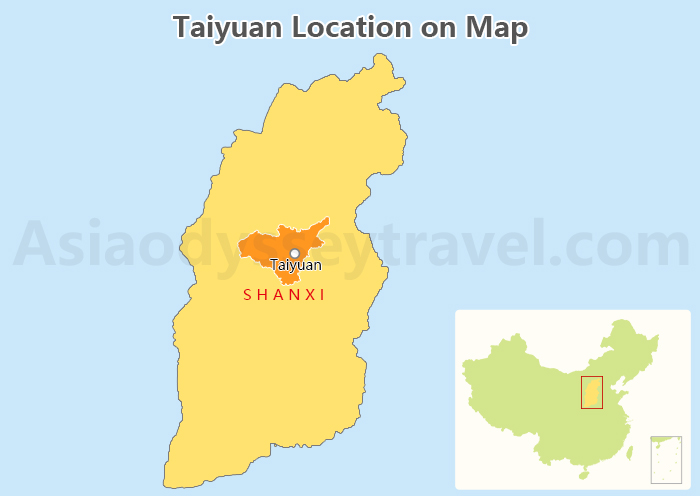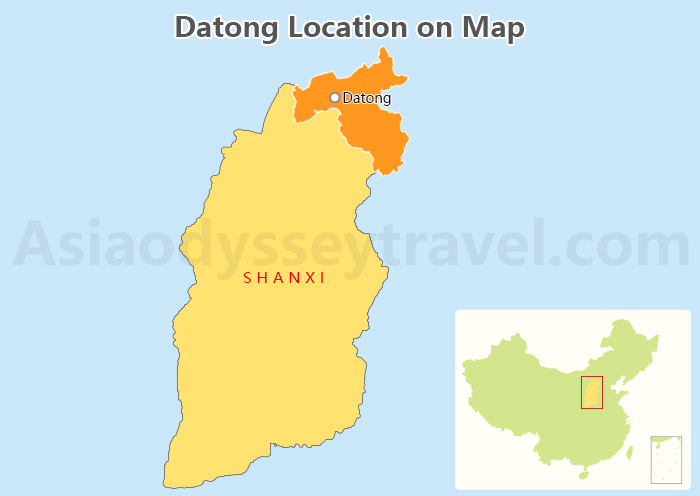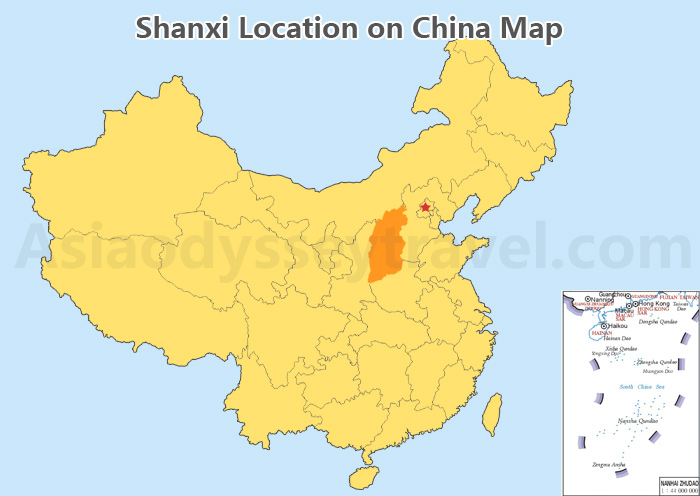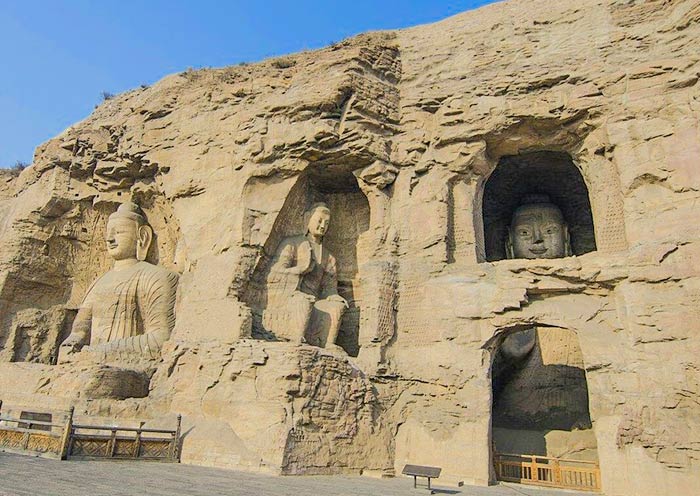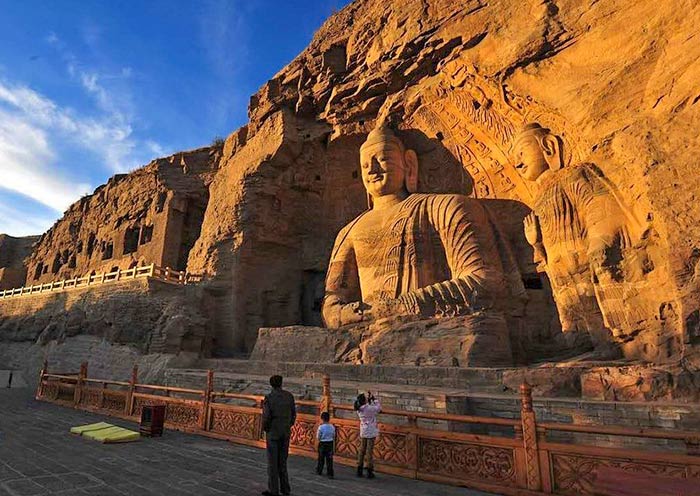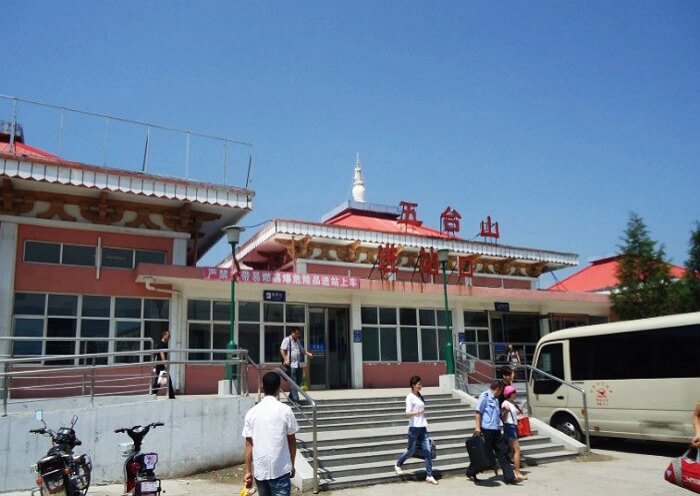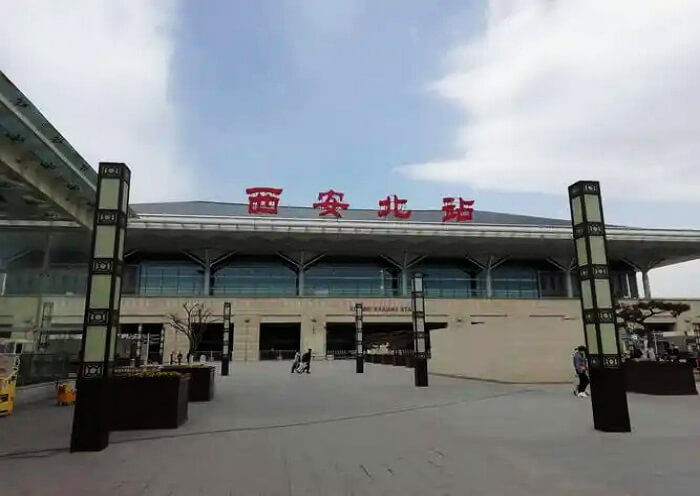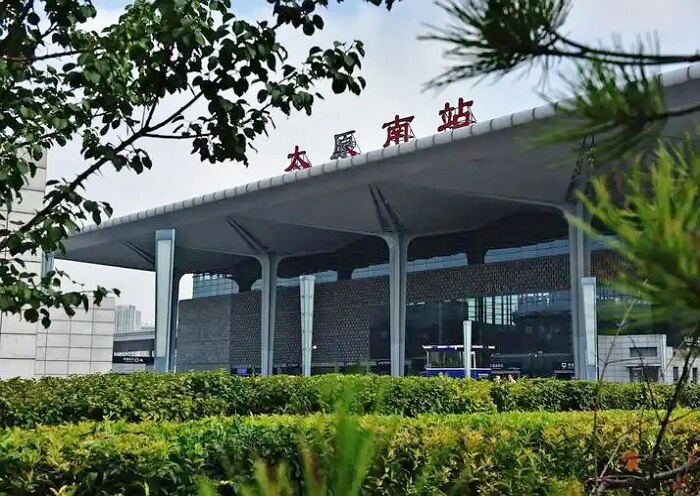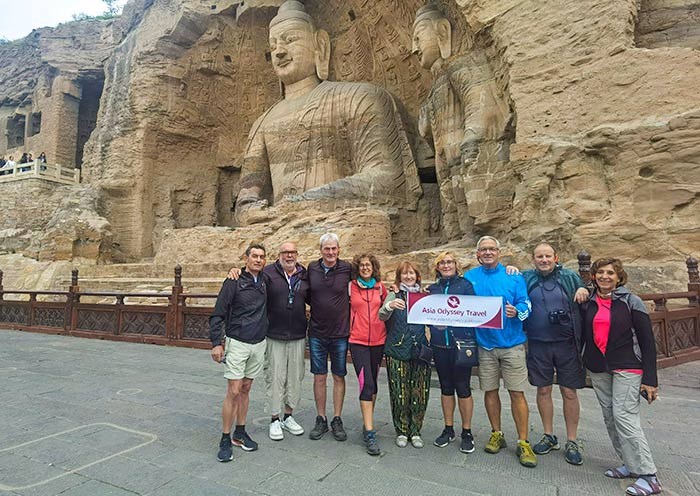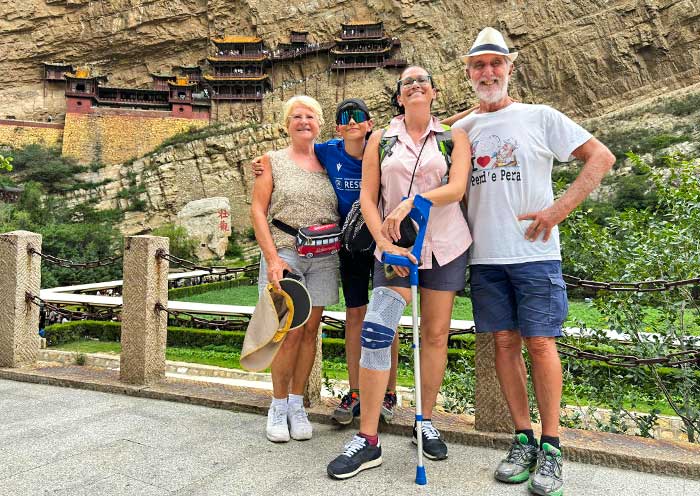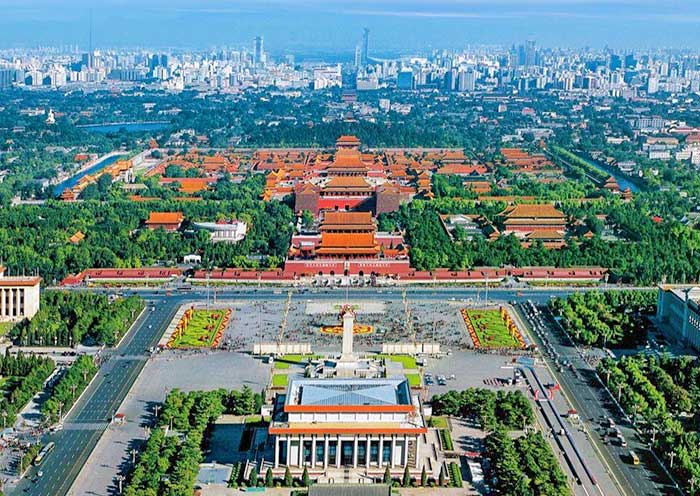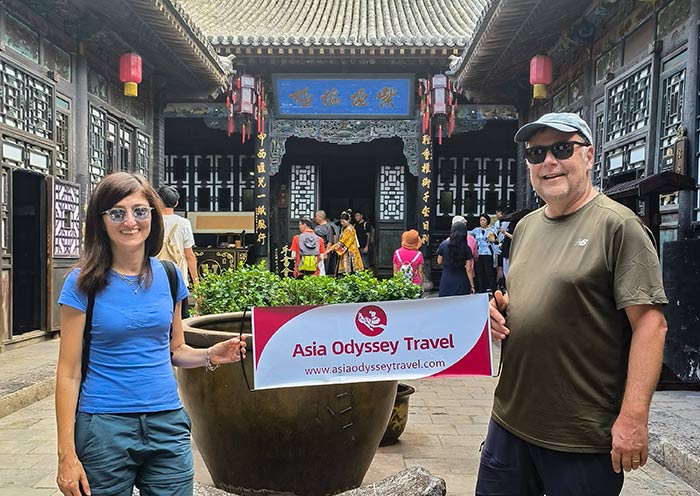Shanxi Taiyuan Visa on Arrival, Suitable for Tourists Visiting Shanxi!
As of July 1, 2016, Taiyuan Wusu International Airport has officially launched its port visa service. This service allows foreigners to apply for seven types of visas upon arrival, including crew, visit, group tourism, business, family visit, talent introduction, and personal matters.
This means that if you don't have enough time to apply for a Chinese visa in advance, you can directly apply for a visa at Taiyuan Wusu International Airport and start your Shanxi journey!
Latest Update for 2024: China has implemented a visa-free policy for citizens of Slovakia, Norway, Finland, Denmark, Iceland, Andorra, Monaco, Liechtenstein, and South Korea until December 31, 2025.
1. What to See in Shanxi? Update Your Attractions List
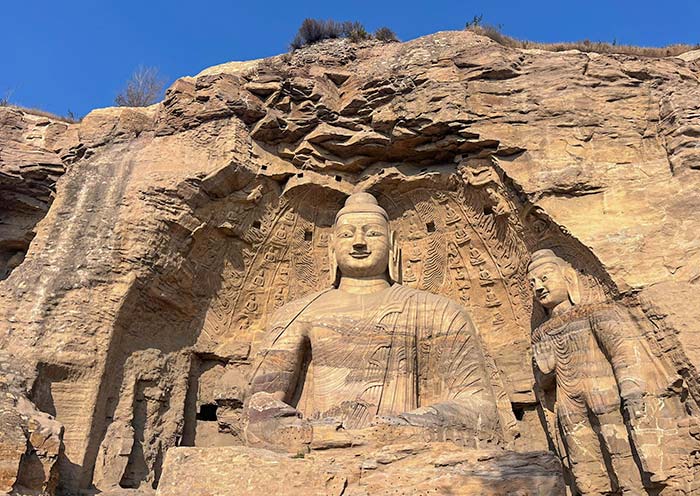
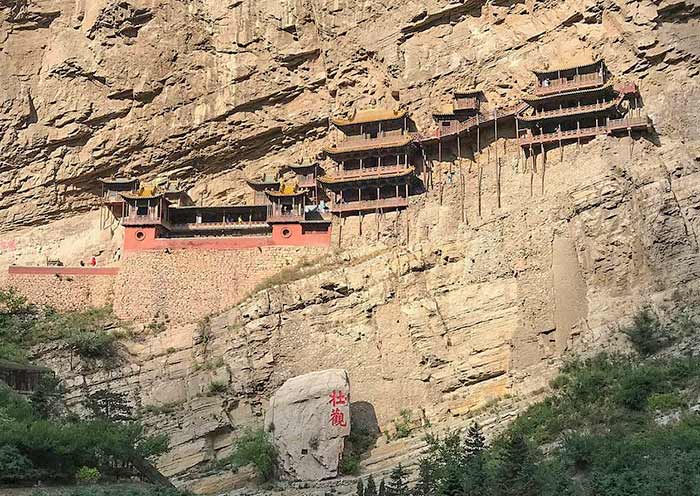
Perhaps you've already got some fun things to do in Shanxi - the magnificent Yungang Grottoes, the ancient brick roads of Pingyao Ancient City, the picturesque Hanging Temple, or the religious tranquility of Mount Wutai. But what other hidden treasures await discovery in this culturally rich province?
Shanxi's tourism gems are scattered across Taiyuan, Datong, Pingyao, Mount Wutai, Hukou, and other areas. Each place is a fusion of deep history, vibrant culture, and natural beauty. When planning your Shanxi trip, consider these must-see destinations based on your personal interests. Get ready to be captivated by Shanxi's breathtaking landscapes!
| Places to Visit in Shanxi | Highlights |
|---|---|
| Yungang Grottoes (Datong) | UNESO World Heritage Site, One of China's Three Great Grottoes |
| Huayan Temple (Datong) | Wooden Architecture, Colored Sculptures, and Murals |
| Hanging Temple (Datong) | A Cliffside Temple, A Harmonious Blend of Three Religions |
| Datong City Wall (Datong) | Uneven Wall, Barbican |
| Yingxian Wooden Pagoda (Shuozhou) | World's Oldest and Tallest Wooden Multi-story Building |
| Jinci Temple (Taiyuan) | Imperial Sacrificial Garden, the Three Treasures of Jinci Temple |
| Pingyao Ancient City (Jinzhong) | UNESCO World Heritage Site, Ancient City Wall, Ancient “Wall Street”, Ming and Qing Dynasties Street and Structure |
| Mount Wutai (Xinzhou) | UNESCO World Heritage Site, Ancient Temples, Natural Scenery |
| Hukou Waterfall (Linfen) | Yello Waterfall, China's Second Largest Waterfall, Eight Wanders |
Check More Things to Do in Shanxi: Top 14 Shanxi Attractions
2. How Many Days in Shanxi? Shanxi Itinerary Planning (Recommended Itinerary)
To determine how many days to spend in Shanxi, it's essential to consider the amount of time required to explore the famous attractions in each city.
| City of Shanxi | Recommended Days |
|---|---|
| Datong | 2 Days |
| Shuozhou | Half Day |
| Xinzhou | 2 - 3 Days |
| Jinzhong | 2 Days |
| Linfen | Half Day |
Stay in Datong (2 or 3 Days)
Cradled by the Silk Road for over a millennium, Datong boasts a rich cultural heritage. A visit to Shanxi is incomplete without exploring this captivating city. Dedicate two days to journey back to the 5th-century Northern Wei Dynasty through iconic landmarks such as the Yungang Grottoes, Nine Dragon Wall, Huayan Temple, and the Hanging Temple.
On the first day, delve into the Yungang Grottoes, marveling at the harmonious blend of traditional Chinese and foreign Buddhist sculptures. In the afternoon, admire the vibrant Nine Dragon Wall, a Ming Dynasty masterpiece adorned with intricate glazed tiles and imbued with the imperial family's desire for protection. Conclude the day with a serene stroll through the Liao Dynasty Huayan Temple, admiring its exquisite architecture and murals.
On the second day, venture to the outskirts of Datong to witness the awe-inspiring Hanging Temple, perched precariously on a cliff face. Experience the temple's intricate construction and breathtaking views up close.
Stay in Xinzhou (2-3 Days)
For a breathtaking natural and spiritual experience, visit Xinzhou! Famous throughout China, Mount Wutai is a sacred Buddhist pilgrimage site attracting millions of visitors each year. With numerous temples scattered across its vast landscape, it's recommended to spend 2-3 days to fully explore this holy mountain.
On your first day, visit Taoyuan Temple, home to the iconic White Pagoda, Shuxiang Temple housing the largest statue of Manjushri Bodhisattva in China, Xian Tong Temple, the largest temple on Mount Wutai, and Pusading Temple, the largest Tibetan Buddhist monastery.
On your second day, ascend to Dai Luo Ding Temple for panoramic views of the entire mountain.
Stay in Jinzhong (2 Days)
Jinzhong is renowned for its well-preserved ancient cities and the influential Jin merchants, who were once as powerful as their Italian counterparts. Immerse yourself in history by strolling through Pingyao Ancient City, visiting Zhangbi Ancient Castle, and exploring the Wang's Family Compound.
On your first day, journey to Pingyao Ancient City, home to the historic Rishengchang Exchange, the "Wall Street of Ancient China". Wander through the Ming and Qing Dynasty streets, and catch a spontaneous opera performance at the City God Temple.
On the second day, explore the Zhangbi Ancient Castle and its astonishing 10-kilometer underground tunnel system. Afterwards, step into the opulent world of Shanxi merchants at the Wang's Family Compound, often referred to as "China's Folk Palace".
Highly Recommended Shanxi Itineraries (4 Days, 6 Days)
Given Shanxi trip plan, it is recommended to allocate four or six days for your itinerary. This will allow you ample time to explore the destinations that interest you most.
4 Days Datong Pingyao Tour:
What to See: Yungang Grottoes, Nine Dragon Wall, Huayan Temple, Datong City Wall, Hanging Temple, Yingxian Wooden Pagoda, Pingyao Ancient City, Zhangbi Ancient Castle, Wang's Family Compound.
Day 1: Start your Shanxi adventure at the Yungang Grottoes. Next, experience the ancient exorcism rituals reflected in the Nine Dragon Wall. Immerse yourself in the Liao Dynasty Khitans' sun worship at Huayan Temple. Conclude your day with a stroll along the Datong City Wall.
Day 2: Begin your second day with an adrenaline rush at the Hanging Temple. After descending, explore the intricate design of the Yingxian Wooden Pagoda.
Day 3: Head to Pingyao Ancient City for checking the ancient urban life like Rishengchang Former Bank, Ming and Qing Dynasties Street, etc.
Day 4: On the last day, explore the ancient underground military tunnels at Zhangbi Ancient Castle, followed by a journey back in time at the bustling Wang's Family Compound, where you can delve into the lives of Shanxi merchants.
6 Days Datong Wutaishan Taiyuan Pingyao Tour:
If you wish to incorporate natural attractions into your itinerary, six days is a more suitable duration.
What to See: Yungang Grottoes, Nine Dragon Wall, Huayan Temple, Datong City Wall, Hanging Temple, Yingxian Wooden Pagoda, Mount Wutai, Pingyao Ancient City, Zhangbi Ancient Castle, Wang's Family Compound.
Day 1-2: Begin your Shanxi trip with the Yungang Grottoes. Then, witness the ancient exorcism procedures reflected in the Nine Dragon Wall. Immerse yourself in the sun worship of the Liao Dynasty Khitans at Huayan Temple. Finish the day with a stroll along the Datong City Wall.
Start the second day with an adrenaline thrill at the Hanging Temple. After descending, examine the complex design of the Yingxian Wooden Pagoda.
Day 3-4: Discover the ancient monastic sites of Mount Wutai. After exploring Mount Wutai, you could take a royal sacrificial garden tour at Jinci Temple.
Day 5-6: Then, end your Shanxi journey in Pingyao Ancient City, Zhangbi Ancient Castle and Wang's Family Compound. On Day 5, you can ancient urban life by visiting Rishengchang Former Bank, Ming and Qing Dynasties Street, Temple of City God.
On Day 6, visit Zhangbi Ancient Fortress to explore its underground tunnels and then journey to Wang Family Courtyard to get a glimpse into the opulent lives of Shanxi merchants.
3. Best Time to Visit Shanxi, Decide When to Start Your Journey
How to plan your visiting time to Shanxi? It depends on the specific regions and attractions you intend to explore within the province.
For those with a penchant for cultural sites, the best time to visit Shanxi is from March to May and September to November. Spring offers mild weather and the rejuvenation of nature, while autumn paints the province in vibrant hues of gold and red, providing a stunning contrast to the ancient architecture. Shanxi's renowned ancient cities such as Pingyao and Datong, along with historical landmarks like the Yungang Grottoes and Jinci Temple, attract countless visitors seeking to delve into the rich tapestry of history.
If your preferences lean towards natural landscapes, the best time to visit Shanxi is from June to August. Although Shanxi experiences hot weather during this period, its majestic mountains, including Mount Wutai, Mount Heng, and the Hukou Waterfall, offer a refreshing escape from the heat.
4. Budgeting Your Shanxi Trip: How Much Does a Trip Cost?
How to Budget for a Comfortable Shanxi Trip: 2000 -3000 Yuan
Accommodation: Opt for guesthouses or budget hotels. These accommodations are affordable and meet basic needs. In Shanxi, you can expect to pay around 100-200 yuan per night for such accommodations, ensuring you find suitable lodging within your budget.
Transportation: Utilize high-speed rail as your primary mode of transportation. This is often the most economical option. Additionally, consider using taxi or private car for convenient and cost-effective travel. Public transportation in Shanxi is inexpensive, with fares ranging from a few yuan to several tens of yuan per trip.
Food: Shanxi offers a variety of delicious noodle dishes, such as knife-cut noodles. You can allocate 50-100 yuan per day for food, allowing you to savor local cuisine.
Attractions and Activities: Most natural and cultural attractions in Shanxi, including the Yungang Grottoes, Pingyao Ancient City, and Mount Wutai, have entrance fees under 150 yuan.
5. Getting to/Around Shanxi By Air, High-speed Train, Bus, Private Car
How to Get to Shanxi (2 Steps)
There are no direct international flights to Shanxi. You need to connect through Beijing in China, which is the closest to Shanxi.
Step 1. Get to Beijing First by Air
Heading to Beijing Capital International Airport or Beijing Daxing International Airport, which serve international flights.
Step 2. Get to Shanxi from Beijing by High-Speed Train (Most convenient)
The only direct flights from Beijing to Shanxi land in Changzhi or Taiyuan. Taking the high-speed rail is the most convenient and budget-friendly option as it allows you to travel to various destinations from Beijing to Shanxi.
Beijing to Datong Train & Flight 2026 (Distance Included)
Beijing to Pingyao Train (3-4h): Map, Schedule, Ticket, Booking (2026)
Beijing to Shanxi Taiyuan Train: Railway Stations, Schedule, Fare
Beijing to Wutaishan: 3 Ways via Bus, Train, Flight 2026
How to Travel Around Shanxi
Traveling by High-Speed Rail (Highly Recommended)
Within Shanxi, high-speed trains can quickly take you to cities such as Datong, Taiyuan, Shuozhou, Xinzhou, Jinzhong, and Linfen.
Traveling by Bus
Buses are another common option, especially for reaching suburban attractions. Each city in Shanxi has direct bus routes to various scenic spots. While not as comfortable as high-speed trains, buses are a more budget-friendly choice.
Traveling by Private Car
For those who wish to save time spent traveling to and from train stations and bus terminals and who prefer a more comfortable journey, hiring a private car is a great option. Consult Asia Odyssey Travel for more information.
6. Plan Your Accommodation in Shanxi
Here are some tips for planning your accommodation in Shanxi:
As a general rule, it's advisable to book your hotel or hostel at least a month in advance, especially during peak tourist seasons when prices can soar.
Consider staying in accommodations located near major attractions for a unique and immersive experience. You can also purchase souvenirs in these areas. Alternatively, staying in a central location offers convenient access to various sights.
If you're joining a group tour, inquire about the accommodation arrangements in advance, such as the room type and amenities.
7. What to Eat in Shanxi? Must Try Dishes
Shanxi food is synonymous with noodles. The love for noodles runs deep in the hearts of Shanxi people. Dao xiao mian (knife-cut noodles), kao lao lao, mao er duo, and you mian kao lao lao are just a few examples. Dao xiao mian, with its wide, thick noodles, is incredibly chewy and is often served with a rich beef broth and various condiments.
Beyond noodles, Shanxi's roast meat, especially Pingyao beef, is a must-try. The meat is tender, juicy, and full of flavor.
Shanxi is also renowned for its vinegar, which is tangy and aromatic. It's used to dip dumplings, mix cold dishes, and even in stir-fries and stews.
8. What to Pack for Shanxi Trip?
Necessary Documentation for Shanxi Trip:
Valid Passport: Your passport must have a validity of at least six months and contain at least one blank visa page.
Apply for China Visa: When applying for a visa, you will need to submit a valid passport, a visa application form, a recent color photograph, and potentially an invitation letter or itinerary as supporting documents.
Hotel Booking Confirmation and Round-trip Flight Ticket: These documents serve as proof of your travel plans and itinerary in Shanxi and may also be required as supporting documents for your visa application.
Invitation Letter (optional): If you are invited to travel to Shanxi by a travel agency or a Chinese organization, you may need to provide an invitation letter as a supporting document for your visa application.
Contact our travel expert at Asia Odyssey Travel to help you handle all things.
Clothing:
- Lightweight Jacket: In Shanxi, there is a significant temperature difference between day and night. It is recommended to bring a lightweight jacket, such as a windbreaker or a light jacket.
- Long-sleeved Shirts/T-shirts: Suitable for daytime wear, providing both breathability and comfort.
- Casual Pants/Jeans: Ideal for outdoor activities and sightseeing during the spring.
- Sneakers/Hiking Boots: Convenient for walking and hiking.
Personal Items: For personal hygiene and comfort, it's recommended to bring your own toothbrush, toothpaste, shampoo, and shower gel. If you plan to visit less popular attractions, the accommodations might be more basic, so consider bringing your own slippers and sleeping bag.
Exploring Beyond Shanxi with Asia Odyssey Travel: Nearby Destinations (Beijing, Xian)
Tailor your dream China adventure with Asia Odyssey Travel. Our experts will craft a personalized itinerary that caters to your specific interests and preferences.
Popular Destinations Nearby Shanxi:
Beijing: Tian'anmen Square, Forbidden City, Summer Palace, Mutianyu Great Wall, Bird's Nest & Water Cube.
Xian: Terracotta Warriors, Ancient City Wall, Muslim Quarter, Grand Tang Dynasty Ever Bright City, Small Wild Goose Pagoda, Xian Museum.
Hot City Tours:
